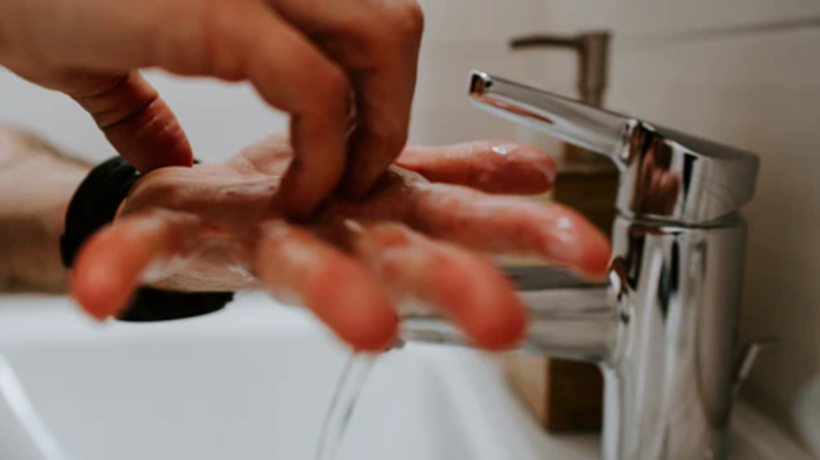Quarantining is the best way to avoid getting and spreading COVID-19. But quarantine life comes with its own costs. We’re cooped up, stressed out, and juggling a mashup of work and home life that we’ve never known. And as Sheldon Cohen, professor of psychology at Carnegie Mellon University, warns, these side effects of quarantine life could, ironically, make us more susceptible to contracting COVID-19 when we venture outside as a result.
Cohen suspects this because he’s studied other respiratory diseases, like colds and flus, for the past 35 years. Paying volunteers up to $1,000 for the risk, his lab has exposed healthy people to disease, spraying viruses right up their nose, to see how they cope. Only about a third of people get sick. And the factors that contribute to sickness, or help prevent it, are exactly his expertise.
After COVID-19 began to spread, Cohen authored a new paper that was just published in Perspectives on Psychological Science. The scientific study reads like a greatest hits album about what we know can help you fight off respiratory illnesses. It’s full of actionable metrics, ranging from the hours of sleep you get each night, to how much you interact with friends and family. While Cohen makes no claims that all of these actions apply to COVID-19 specifically, you’d be smart to incorporate them into your own life all the same.
“All of the factors we have studied have been found to have broad positive effects on health,” says Cohen. “So, there are benefits, even if they do not end up to influence COVID-19 susceptibility.”
Here are some of the best life insights from the paper.
EXERCISE AND SLEEP
While in quarantine, you need to make sure you exercise and get enough sleep. But how much is enough? You need to exercise a minimum of twice a week, and sleep at least six to seven hours a night (though seven or more seems safest). Cohen’s subjects who exercised less than this were 1.8x more likely to develop colds when exposed to such viruses (exercise, incidentally, was self-reported, so whatever someone felt was exercise counted as exercise). In one study, those who got fewer than seven hours of sleep were 2.94x more likely to develop a cold than those who averaged eight hours or more. The quality of your sleep is also a big factor. Those with a sleep efficiency (read more on that term here) of less than 80% were 2.6x more likely to develop colds. There are all sorts of clinically proven ways to increase the quality of your sleep—conveniently, they include exercise! But you can also reduce your time spent looking at screens, and design your bedroom to help you rest, too.
GET YOUR VITAMIN C—WITHIN REASON
Anyone who has looked up cold prevention has no doubt come across recommendations to take vitamin C and zinc. According to Cohen’s research, zinc doesn’t prevent someone getting sick. However, vitamin C can help. He found that if people ingested fewer than 85mg of vitamin C a day—the FDA recommendation is 90mg—they were twice as likely to develop a cold. So you should make sure you’re getting your baseline every day. But what about taking more with one of those mega vitamin C supplements you can buy? “I do not believe that huge supplements will help,” says Cohen.
MANAGE STRESS
Tens of millions of Americans have lost their jobs during COVID-19. It’s one of many major life stressors that can wreak havoc on our immune systems. Cohen has found that people who are managing the most stress are 2.16x more likely to develop colds than those who reported having the least amounts of stress in their life. The problem appears to be cortisol. We need this stress hormone to induce immune response. But when our bodies are constantly flooded with cortisol from life stress, our immune cells become insensitive.
Exercise and meditation have both been proven to reduce cortisol levels in blood. But a simpler solution is right outside. A 20-minute “nature pill“—like gardening or walking in a park—is enough to reduce cortisol levels, and the benefits grow for up to an hour. How do you know what constitutes a nature pill? All that matters is that wherever you are feels like nature.
KEEP IN TOUCH WITH FRIENDS AND FAMILY
While it’s easy to view relationships as a contributor to stress, the truth is that having a variety of social responsibilities is good. If you’re a parent, spouse, friend, neighbor, volunteer, and colleague all at once, these categories of social roles are actually additive, shown to strengthen your immune system in a way that having 50 friends does not.
A diverse social network makes your body stronger to fight many viruses. As Cohen has found, people with just one to three types of social ties were 4.2x more likely to become ill during his testing than those who had six or more.
As we all know by now, staying in touch with friends, family, and various acquaintances is particularly tricky in quarantine. Loneliness is a real problem for our psyche and our body’s health. Cohen suggests that phone calls and Facetiming might help. He’s also found some correlation (though not causation) between drinking alcohol and one’s ability to avoid sickness—so maybe there really is something to the Zoom happy hour.
Cohen cannot say that these social tools offer the same benefits as spending time with more people in person every day, but he still believes it’s worth trying. “I think that [virtual] contact with one’s social network during quarantine would be helpful,” says Cohen. “[That’s my] opinion . . . no evidence.”
Article originally published on fastcompany.com







